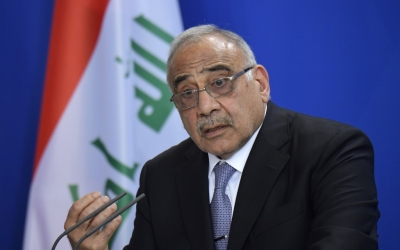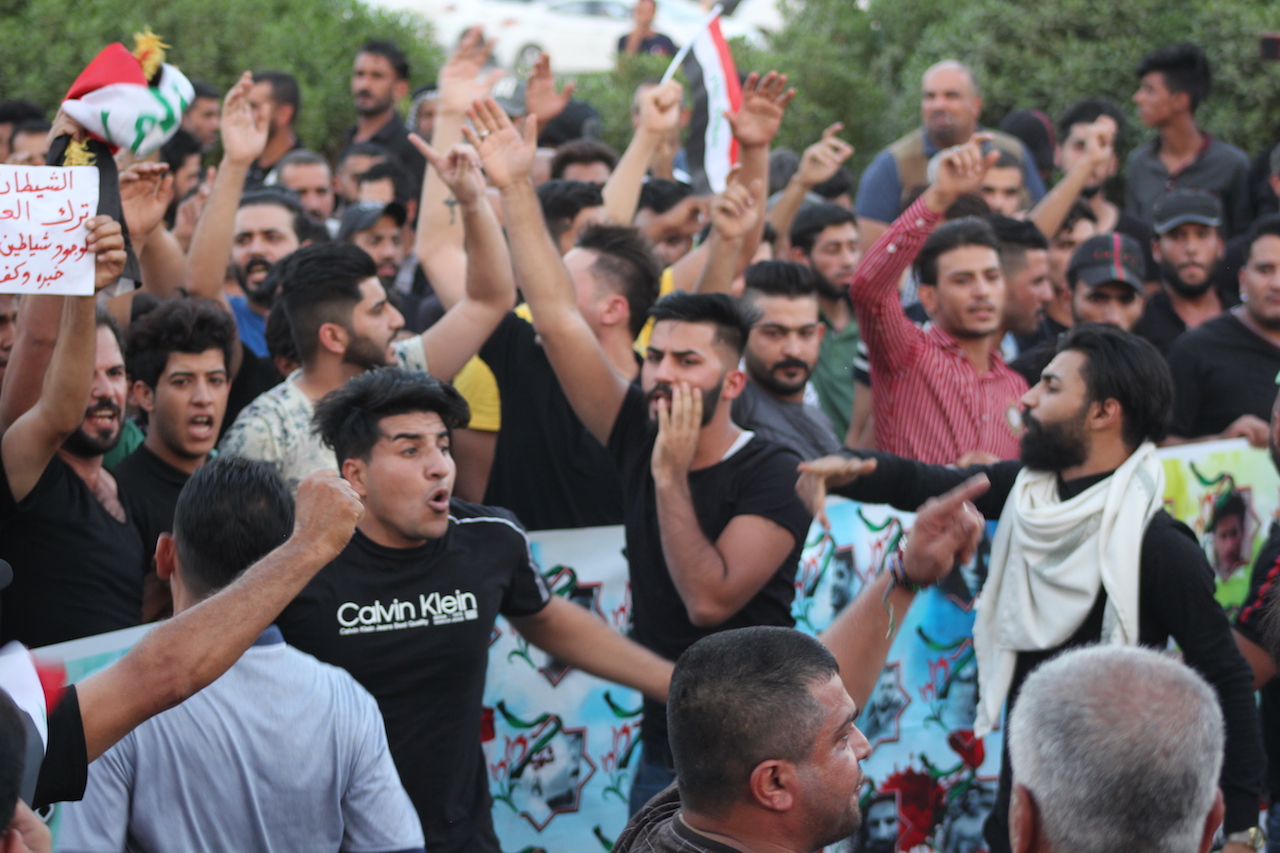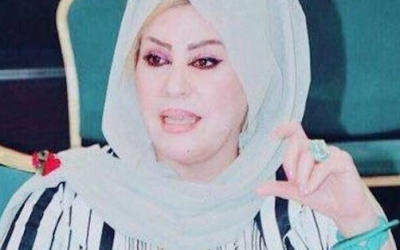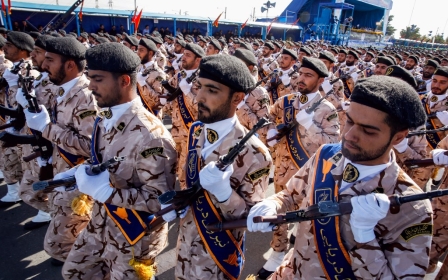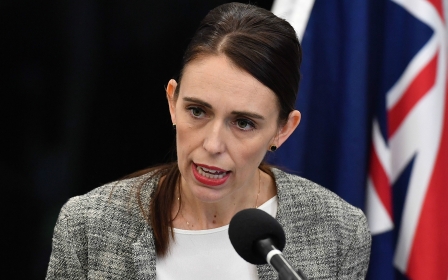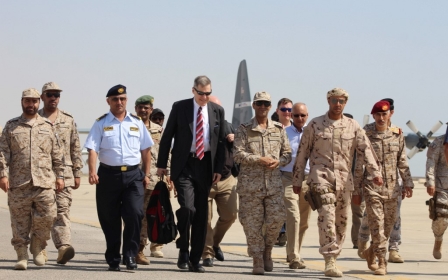Iraq fearful electricity failures could spark another long, hot summer of unrest
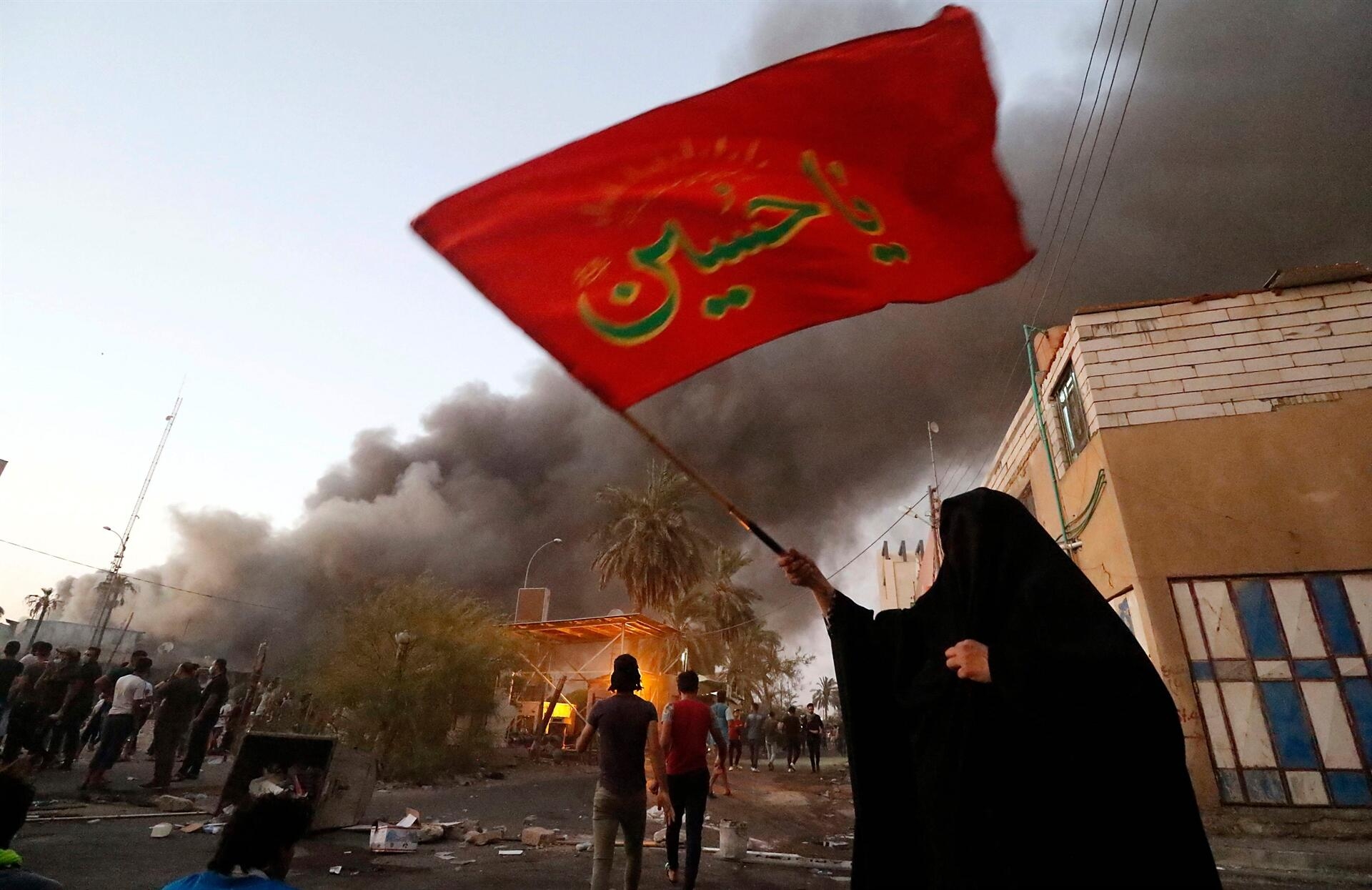
With a long summer looming in Iraq, things are beginning to heat up again in the country, both figuratively and literally.
Despite fears that the protests and clashes that rocked the country last year could repeat themselves in the coming months, the government is still paralysed as it tries to negotiate between competing Iranian, US and German interests in its energy sector.
The United States has been pushing Iraq to end its reliance on Iranian electricity, which currently accounts for around 35 to 40 percent of Iraq's power.
Iraq's latest waiver on Iran sanctions - which were reimposed on the country by US President Donald Trump in November - is set to expire on 18 June if the government is unable to negotiate an extension.
The government, as it stands, has also yet to fully form more than a year after the May 2018 elections. A number of key positions such as interior minister are still open, with duties currently being undertaken by beleagured Prime Minister Adel Abdul Mahdi.
Last summer saw numerous provinces - mostly notably Basra - erupt into demonstrations and clashes over a lack of electricity (among other things) as temperatures soared over 50 degrees and power cuts made keeping cool near impossible. The whole ordeal eventually cost then prime minister Haider al-Abadi his career.
Though there has been a change of government since then, little appears to have improved, and anger is starting to boil over again.
"Mahdi's fear is a repeat of 2018 and that he will fall from office," Iraq analyst Joel Wing told Middle East Eye.
"He's in a far weaker position than Abadi with no coalition behind him but rather two competing lists."
Sporadic demonstrations have already begun to kick off in the southern provinces.
On 11 June, around 30 people demonstrated outside the Majnoon oil field, protesting over lack of services but also the longstanding complaint that jobs in the country's flagship industry were not being allocated to locals.
In neighbouring Dhi Qar province, students at the Dhi Qar university protested against electricity cuts on 28 May, while on 4 June there were protests outside an electricity company in Qurna, north of Basra city.
The prospects of a repeat of last year's demonstrations scares many - dozens were killed, hundreds injured, and many complained of abuse by security forces and shady armed groups. Protesters, for their part, torched the Iranian embassy in Basra, as well as numerous municipal buildings. This was blamed by some on politically motivated infiltrators.
One activist in Baghdad told MEE that he was "frankly afraid" to take part in protests against electricity shortages this year after being abducted while taking part in demonstrations last year.
'The government itself is not very stable, it’s not a strong government, it’s a government that’s dependent on flawed coalitions'
- Sarkawt Shams, MP
Abadi eventually decided, following criticism and pressure from other parties, not to seek the premiership again in September, despite supposedly riding high from the victory over the Islamic State group in Mosul the previous year.
"We need something immediately to find solutions for the current crisis," Sarkawt Shams, an MP with the New Generation party, told MEE. "The government itself is not very stable, it’s not a strong government, it’s a government that’s dependent on flawed coalitions."
He added that any further demonstrations could be used by political parties keen to undermine the government.
"It’s not being seen as a pure demonstration like a civic action, it’s more seen as a strategy to overthrow the government," he said.
"I’m really concerned it will lead to more violence ... because it’s all politicised."
Not 'Iraqi will'
Luay al-Khatteeb, who was appointed electricity minister in October, has been keen to try and play down the possibility of an upheaval similar to last year.
He has insisted to the media that steps have been taken to better prepare the country, and electricity output has been boosted significantly since his coming to office.
"On 25 October, the week I took office, electricity generation sat at between 9.5 to 10 GW. It is now at 15 GW," he told the AFP news agency, adding that "most Iraqi provinces will receive no less than 20 hours of electricity per day".
A major new headache the minister has faced since he came to power, however, has been the renewed sanctions on Iran.
In April, Iraq signed a $14bn "roadmap" with the German company Siemans to rebuild the country's failing electricity infrastructure, severely damaged by decades of war.
However, the Iraqi government has also faced pressure from the US to sign contracts with its own General Electric, with Trump reportedly intervening in October to remind the Iraqis that 7,000 Americans had died since 2003 defending the country.
Iraqi government sources told AFP in May that in addition to General Electric, the US was also pressuring Iraq to sign contracts with ExxonMobil and Honeywell as it weans off Iranian energy.
Dia al-Asadi, a former MP close to the popular and powerful Shia cleric Muqtada al-Sadr, told Middle East Eye that foreign interference in Iraq was making it difficult to improve the country's infrastructure.
"This will give an indication to investors and all people concerned that there is also a political will involved in the construction of the power sector and this will is not necessarily Iraqi will," he said.
"There are international forces which are putting us in this position."
Despite Khatteeb's announcement in January that he would be focusing on short-term projects to quickly boost Iraqi electricity production, output is still below what is required.
On Monday, Mahdi said that electricity production was up to 18,000 megawatts, compared to 14,000 megawatts in May.
'There are international forces which are putting us in this position'
- Dia al-Asadi, former MP
Wing pointed out that in July 2018, the height of last year's demonstrations, "the electricity ministry said it was producing 15,900 megawatts".
"Mahdi in June 2019 said that production was up to 18,000 megawatts - again that's far below the 24,000 megawatts that are needed during the summer," he said.
Khateeb did not repond to MEE requests for comment.
Power cuts have already begun to affect different parts of Iraq - the health department in Dhi Qar said last week that air conditioning was being interrupted at a hospital in the southern governorate's capital city of Nassirya.
The provincial water department also said that drinking water had been disrupted to five cities due to a lack of electricity as well.
Perhaps realising it was likely to be a flashpoint again, Khatteeb was in Basra on Friday to oversee the opening of three secondary power stations, which he said would help ease "bottlenecks" and "increase processing hours for citizens".
Shams, the MP, said it was urgent that stability be assured for the country's energy sector - and that political parties and foreign players not try and undermine the independent Khatteeb from doing his job.
"Electricity is not just a service in Iraq - it’s a matter of national security and political stability," he told MEE.
"That’s why Khatteeb is working very hard to convince the Americans to renew the waiver until we can get deals with other countries like Saudi Arabia maybe or Kuwait or find a way to depend on our own energy sectors."
'A very lonely summer'
Kirk Sowell, publisher of the Inside Iraqi Politics newsletter, told MEE it was "going to be a very lonely summer for Abdul Mahdi".
"I don't foresee bringing the government down because that would require a majority ready to either face new elections or elect a new PM, and I don't see a majority for either," he said.
"But I don't see anyone standing up and saying, 'We support this prime minister and think the government is doing a good job' when the going gets tough. They'll let him take all the public abuse.
"If there are massive protests he will just have to weather it."
And all the while, the tensions are rising in the Gulf.
On Thursday, US Secretary of State Mike Pompeo warned Washington would be willing to take action against Iran over attacks on two tankers in the Gulf of Oman, which he blamed on the Islamic Republic.
"It is the assessment of the United States that the Islamic Republic of Iran is responsible for the attacks," Pompeo announced.
"This is based on intelligence, the weapons used, the level of expertise needed to execute the operation, recent similar Iranian attacks on shipping, and the fact that no proxy group operating in the area has the resources and proficiency to act with such a high degree of sophistication."
Iraqis are fearful of what impact an increasingly bellicose relationship between Iran and the US - the country's two closest allies - could have on them.
Such a confrontation makes the possibility of resolving the country's domestic situation ever more untenable and exacerbates the political and social divisions that already exist in the country.
"If there is any conflict between the US and Iran, the country that will be most affected will be Iraq," said Asadi.
"It is not easy for the US to seperate Iraq from its neighbours - even though we sometimes criticise the Iranian policies when it comes to Iraq.
"But still, Iran is one of the major neighbours of Iraq and the US militarily confronting Iran will raise people's sympathy with the Iranian regime and they will try to the defend the Islamic Republic - so this will worsen the situation."
Middle East Eye delivers independent and unrivalled coverage and analysis of the Middle East, North Africa and beyond. To learn more about republishing this content and the associated fees, please fill out this form. More about MEE can be found here.


